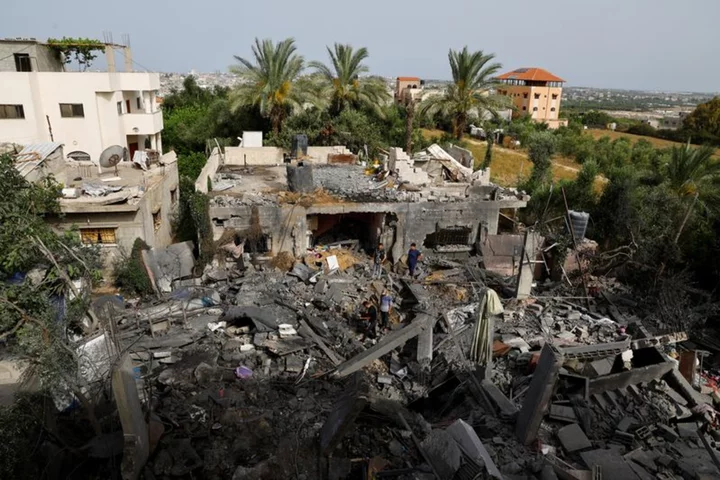
Palestinian rockets fired towards Jerusalem, Israel keeps up strikes on Gaza
By Nidal al-Mughrabi and Ari Rabinovitch GAZA/JERUSALEM (Reuters) -Palestinian militants on Friday fired rockets towards Jerusalem for the first time
1970-01-01 08:00

Imran Khan to be released from custody, court rules
Judges released Mr Khan on protected bail, meaning he can not be re-arrested for at least two weeks.
1970-01-01 08:00

Small aerospace suppliers press for better protections against rising costs
By Allison Lampert, Abhijith Ganapavaram and Valerie Insinna MONTREAL/WASHINGTON The CEO of Canadian aerospace supplier Abipa International would
1970-01-01 08:00

UBS’s Ermotti Says State, SNB Loss ‘Exceptionally Unlikely’
UBS Group AG Chief Executive Officer Sergio Ermotti gave his strongest indication yet that the Swiss government and
1970-01-01 08:00
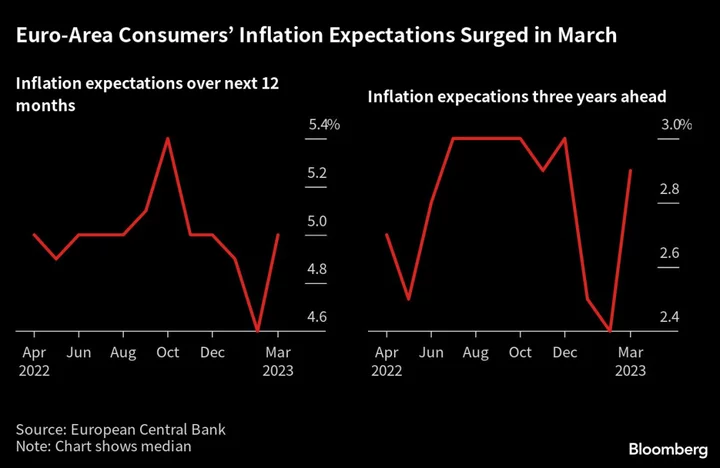
ECB May Need to Tighten Further After the Summer, Nagel Says
The European Central Bank may have to continue raising borrowing costs beyond the summer, according to Governing Council
1970-01-01 08:00

Fed Needs More Hikes If Inflation, Labor Stay Hot, Bowman Says
The Federal Reserve will likely need to raise interest rates further and hold them higher for some time
1970-01-01 08:00

Kepco CEO to Resign as Utility Pledges Financial Overhaul
Korea Electric Power Corp.’s Chief Executive Officer Cheong Seung-il offered to resign as the state-run utility announced a
1970-01-01 08:00

Pakistan Latest: Government Slams Court for Freeing Imran Khan
Pakistan’s government criticized the Supreme Court for releasing former premier Imran Khan from custody and vowed to find
1970-01-01 08:00

G7 finance heads face tricky trade-off in debating steps to counter China
By Leika Kihara and Andrea Shalal NIIGATA, Japan Finance leaders of the Group of Seven (G7) advanced economies
1970-01-01 08:00
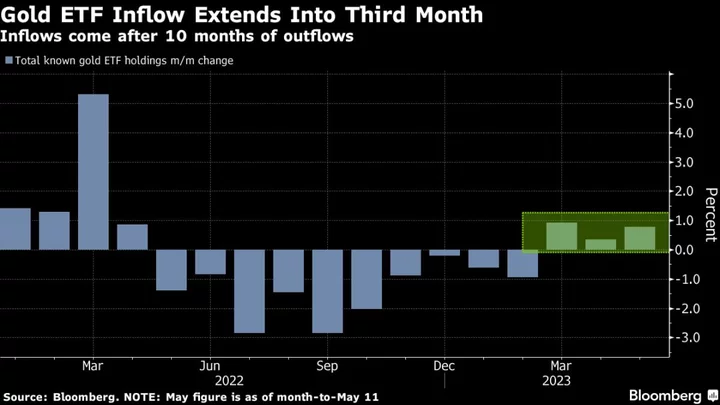
Gold Looks ‘Best Hedge’ as Debt-Ceiling Angst Builds, RBC Says
Mounting fears over the US debt-ceiling crisis will benefit gold as investors brace for potential chaos in financial
1970-01-01 08:00
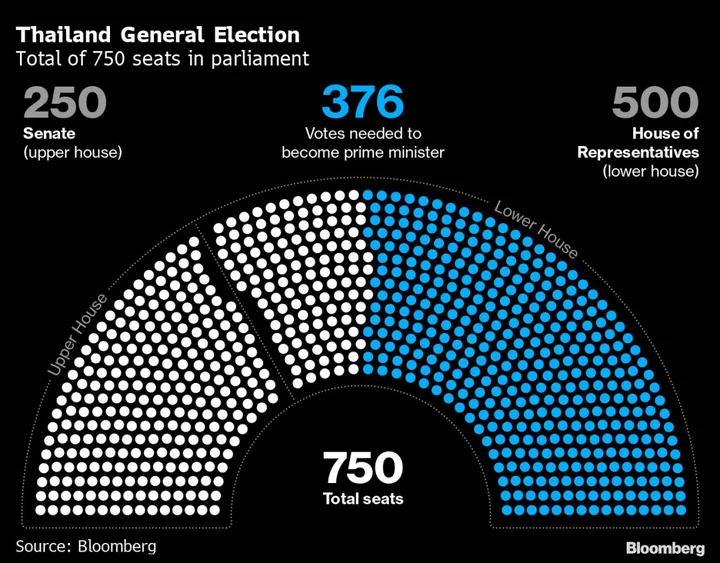
Thai Military Rules Out Coup After Vote as Campaigning Ends
Thailand’s army chief said there was “zero chance” of the Southeast Asian nation returning to a military rule
1970-01-01 08:00
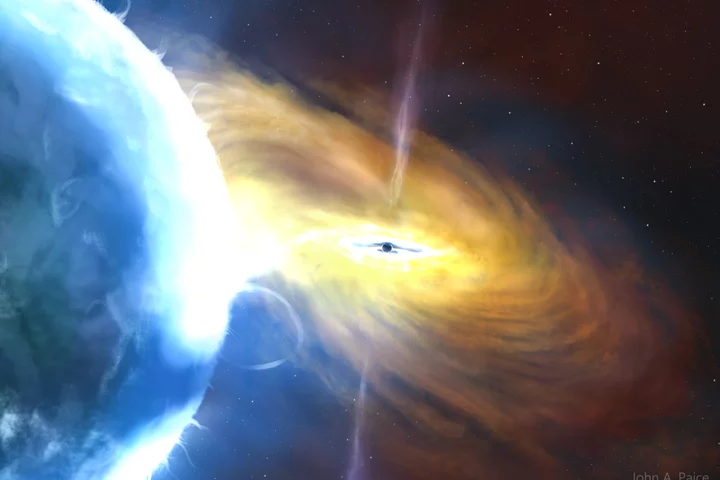
Biggest explosion ever seen spotted in space – and scientists don’t know what it is
The biggest explosion ever seen has been spotted in space – and scientists don’t know for sure where it came from. The blast was brighter than almost anything ever seen and has been going on for years, making it by far the most powerful such event witnessed by scientists. It has been ongoing for more than three years, and took place nearly 8 billion years away. Astronomers have proposed a host of possible explanations for the blast: it may be a vast cloud of gas that was torn apart by a black hole, for instance. But nothing on such a scale has ever been seen before and the explosion may have come from something else entirely. It is more than 10 times brighter than any known supernova and three times brighter than the brightest tidal disruption event, where a star falls into a supermassive black hole. The explosion, known as AT2021lwx, took place when the universe was around six billion years old, and is still being detected by a network of telescopes. The astronomers, led by the University of Southampton, believe the explosion is a result of a vast cloud of gas, possibly thousands of times larger than our sun, that has been violently disrupted by a supermassive black hole. Fragments of the cloud would be swallowed up, sending shockwaves through its remnants, as well as into a large dusty “doughnut” surrounding the black hole. Such events are very rare and nothing on this scale has been witnessed before, the researchers say. Last year, astronomers witnessed the brightest explosion on record – a gamma-ray burst known as GRB 221009A. Although this was brighter than AT2021lwx, it lasted for just a fraction of the time, meaning the overall energy released by the AT2021lwx explosion was far greater. AT2021lwx was first detected in 2020 by the Zwicky Transient Facility in California, and subsequently picked up by the Asteroid Terrestrial-impact Last Alert System (ATLAS) based in Hawaii. But until now the scale of the explosion had been unknown. Dr Philip Wiseman, research fellow at the University of Southampton, who led the research, said: “We came upon this by chance, as it was flagged by our search algorithm when we were searching for a type of supernova. “Most supernovae and tidal disruption events only last for a couple of months before fading away. For something to be bright for two plus years was immediately very unusual.” The Southampton-led team believe the most feasible explanation for what caused the explosion is an extremely large cloud of gas (mostly hydrogen) or dust that has come off course from its orbit around the black hole and been sent flying in. Dr Wiseman added: “With new facilities, like the Vera Rubin Observatory’s Legacy Survey of Space and Time, coming online in the next few years, we are hoping to discover more events like this and learn more about them. “It could be that these events, although extremely rare, are so energetic that they are key processes to how the centres of galaxies change over time.” The findings are published in Monthly Notices of the Royal Astronomical Society. Additional reporting by agencies Read More Biggest explosion ever seen spotted in space – and we don’t know what it is Scientists think they have explained a ‘mysterious structure in the universe’ Astronomers spot the largest cosmic explosion ever seen Astronomers spot the largest cosmic explosion ever seen Astronomers see ‘objects that no one has ever seen before’ in incredible observations ‘Meteorite? shooting star? missile?’: Officials explain strange ‘fireball’ over Japan
1970-01-01 08:00
